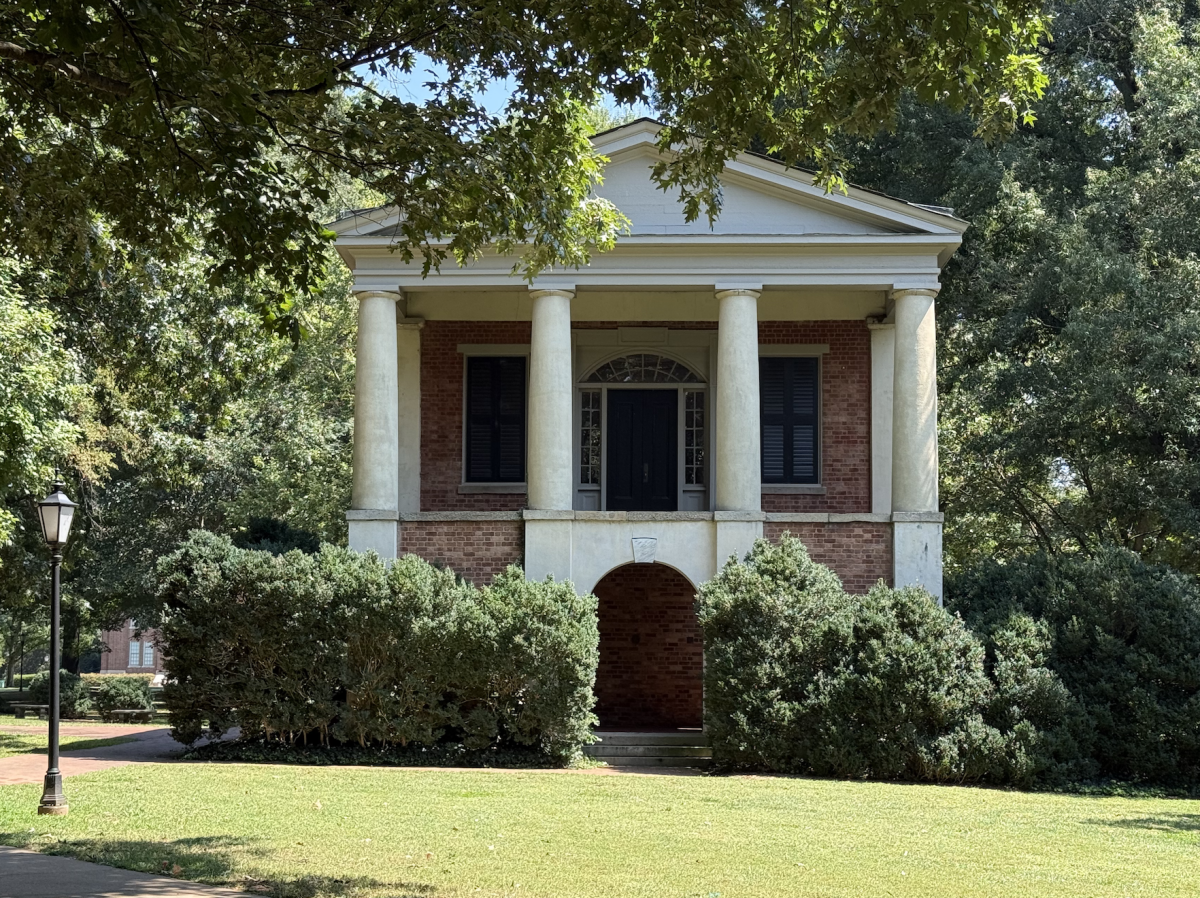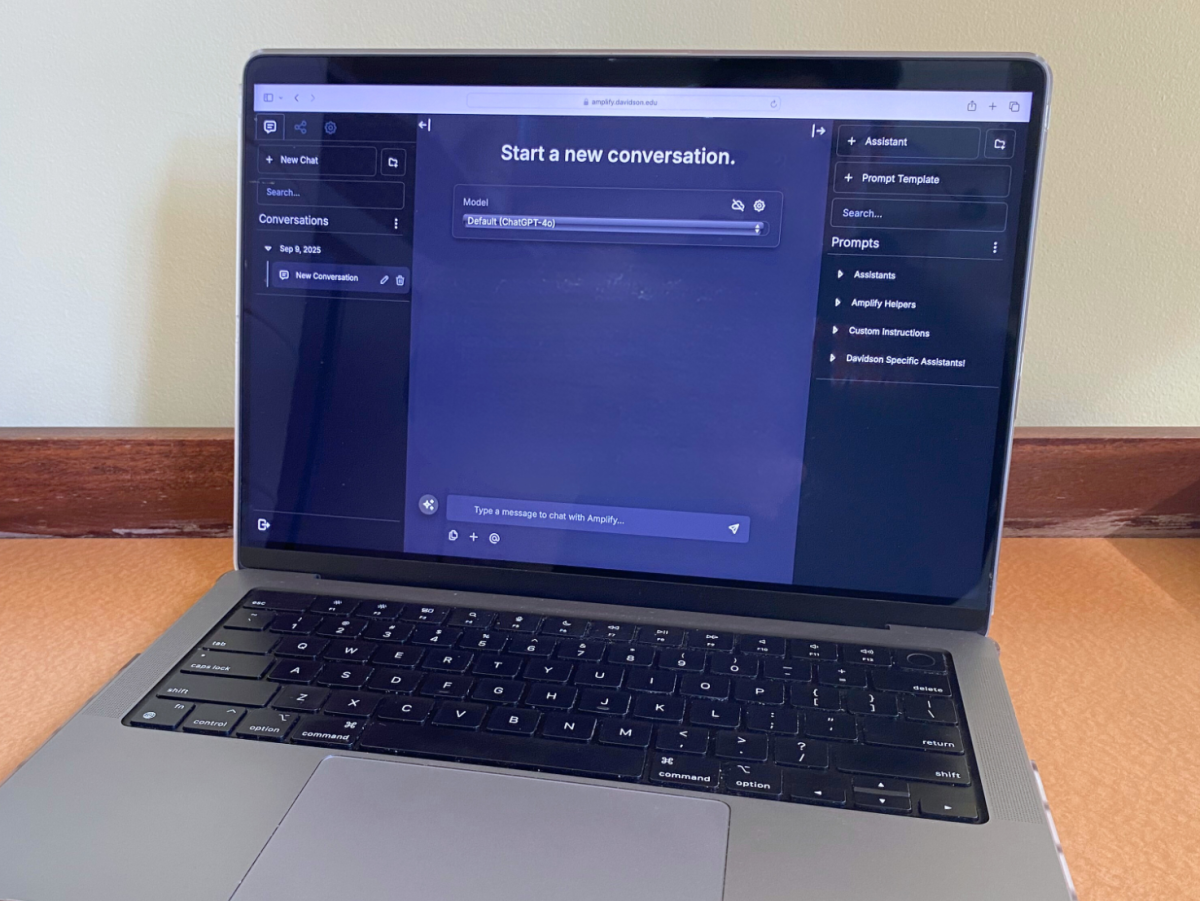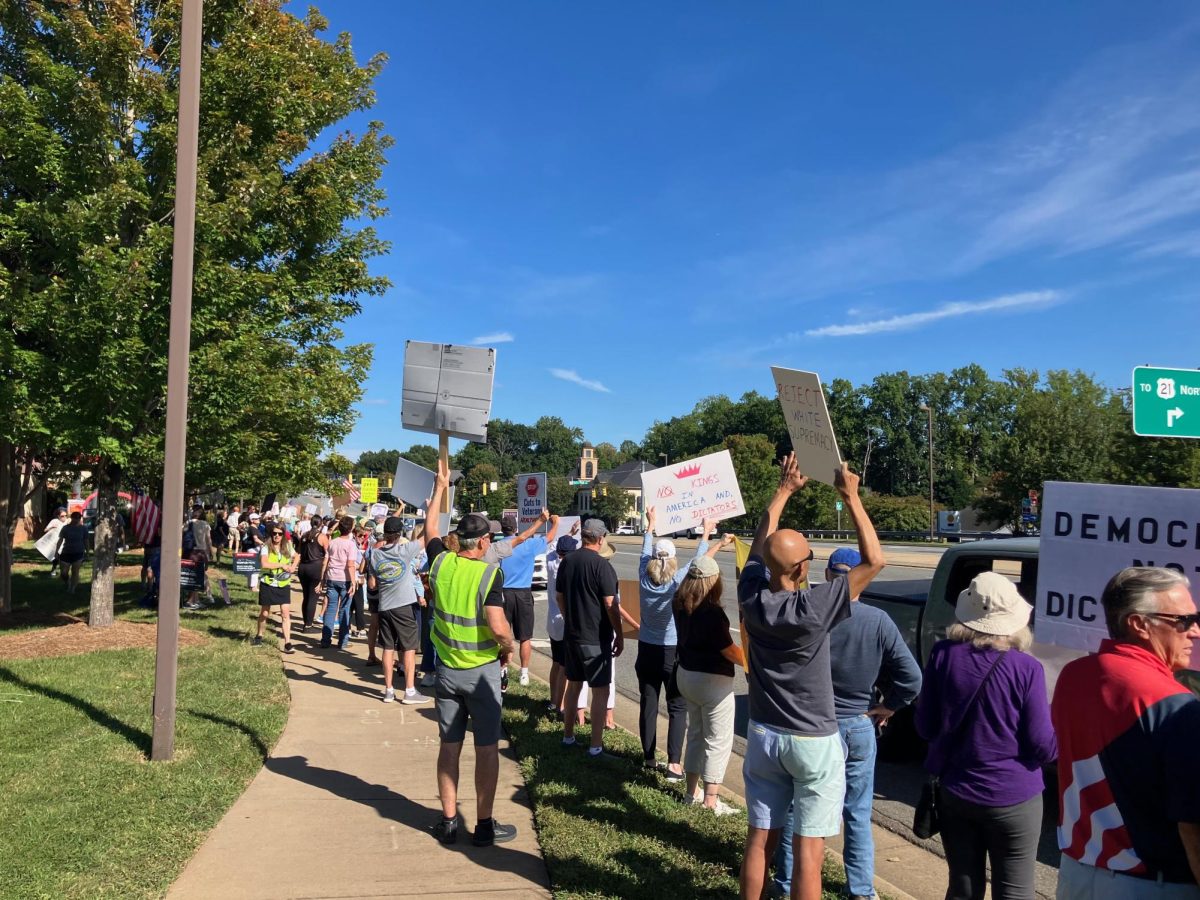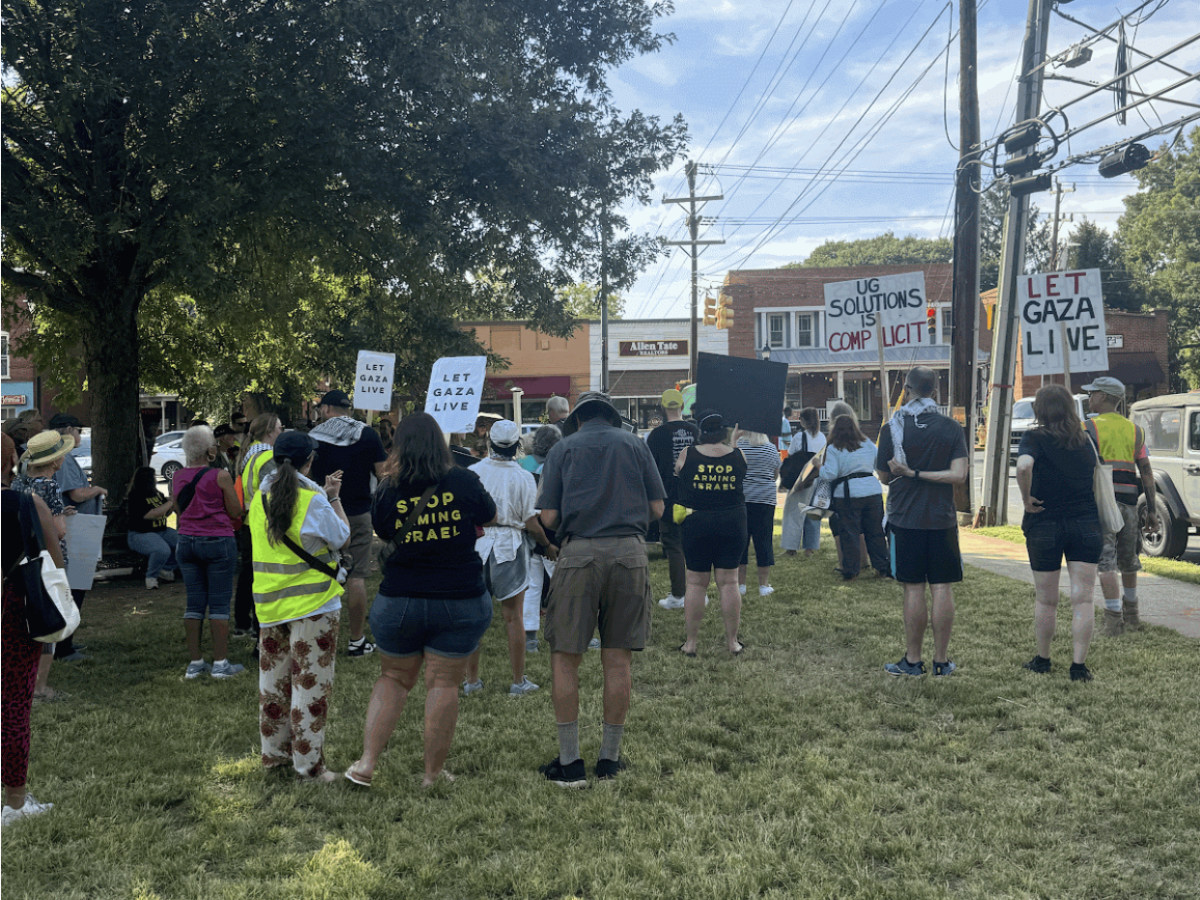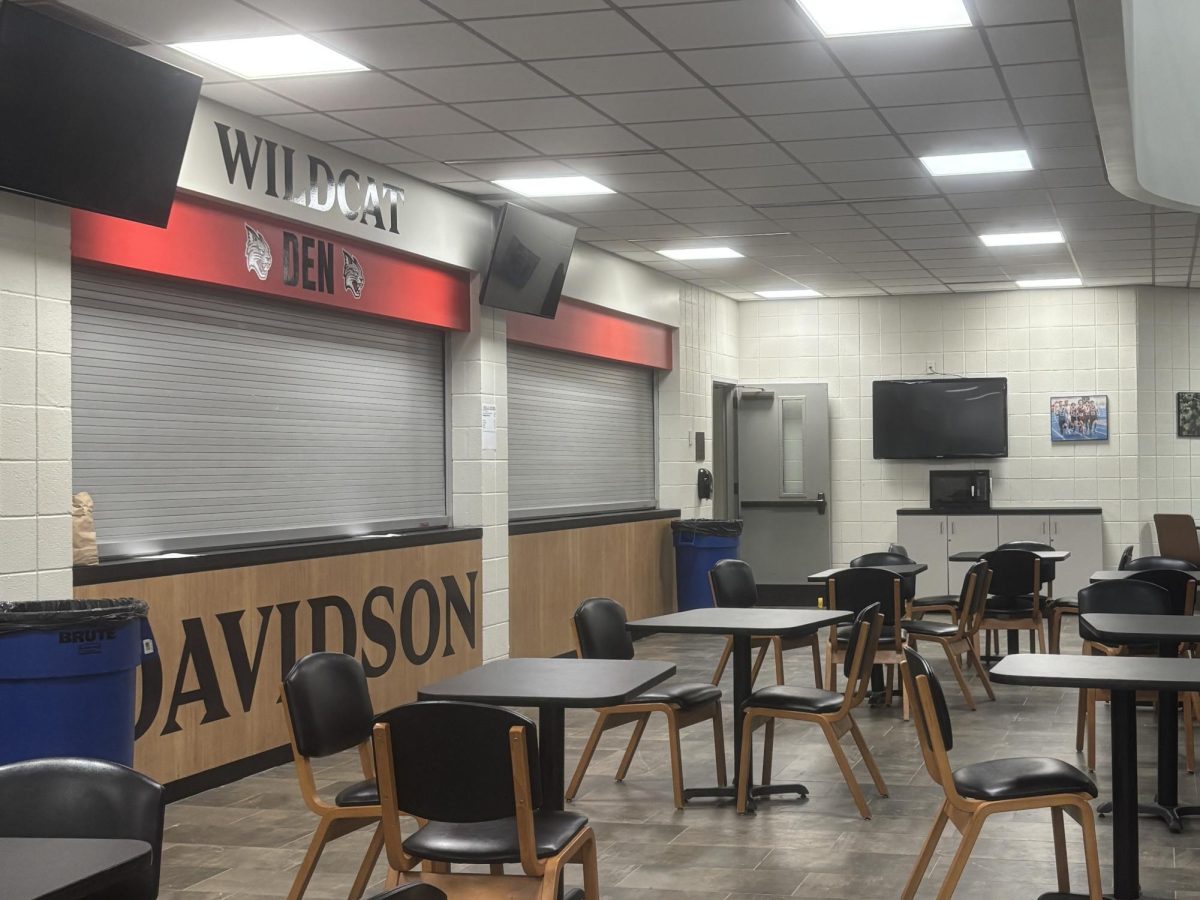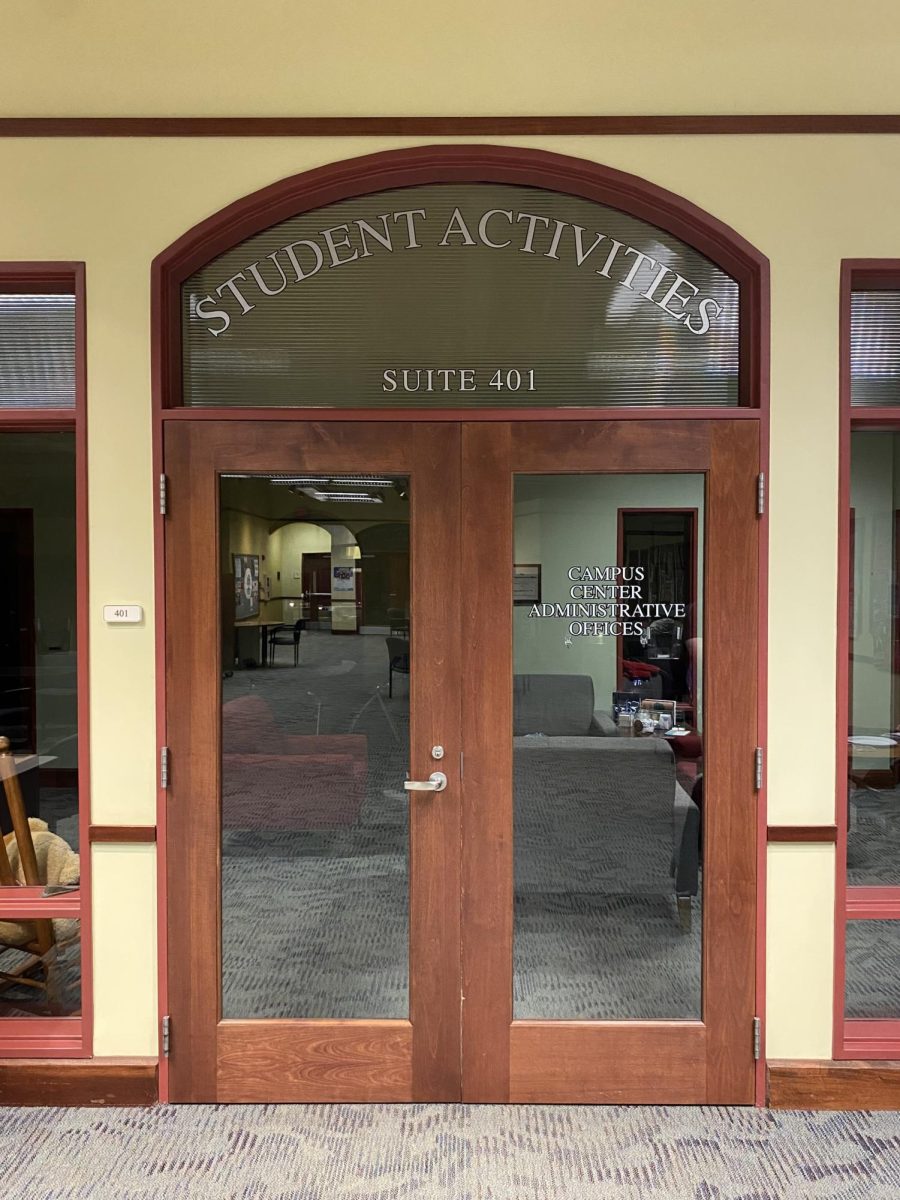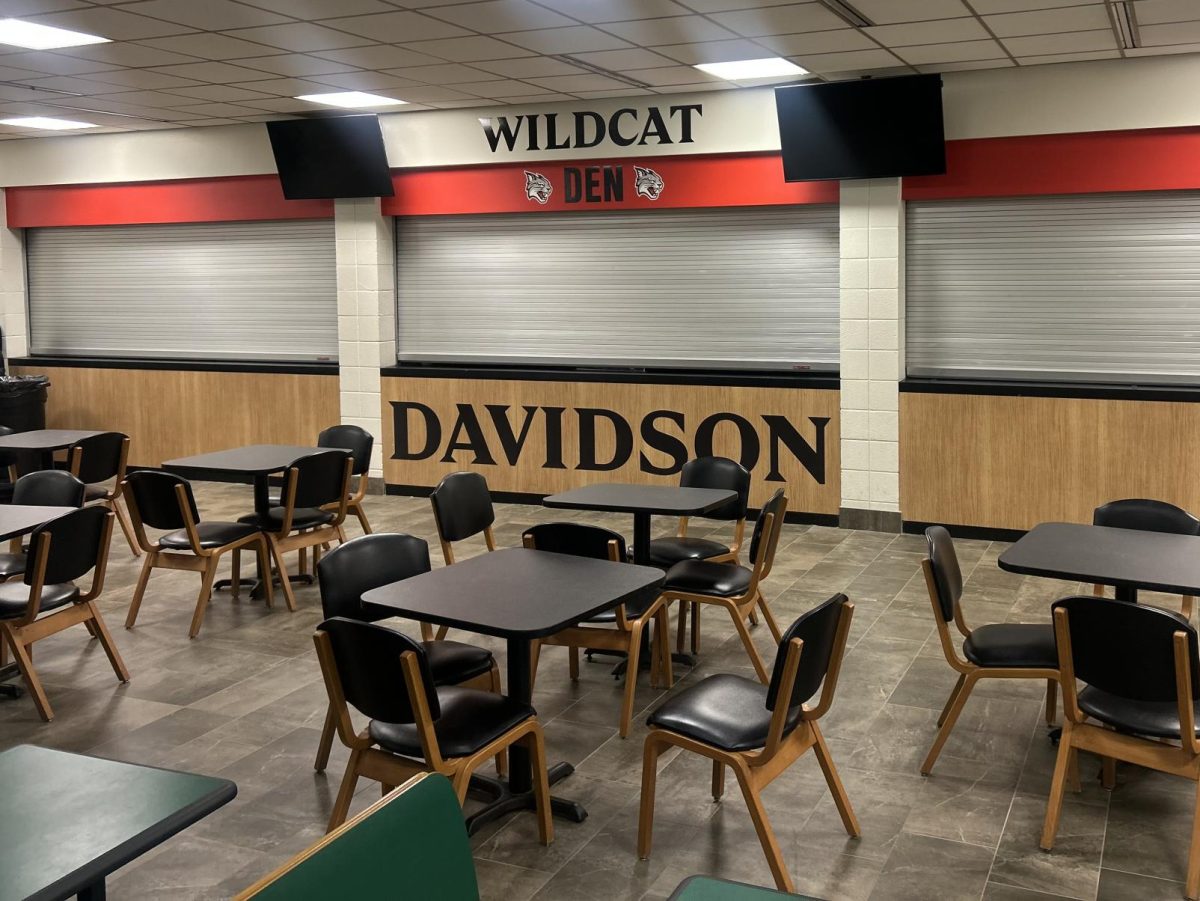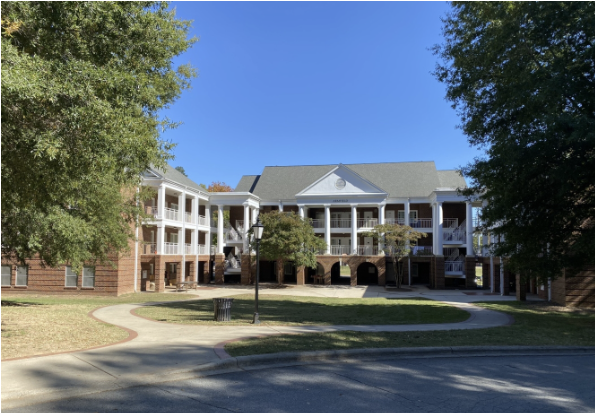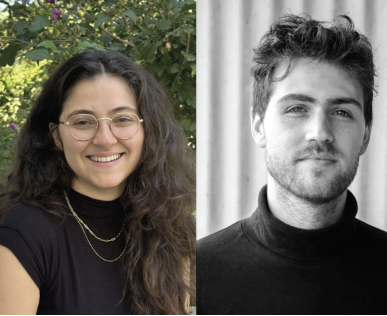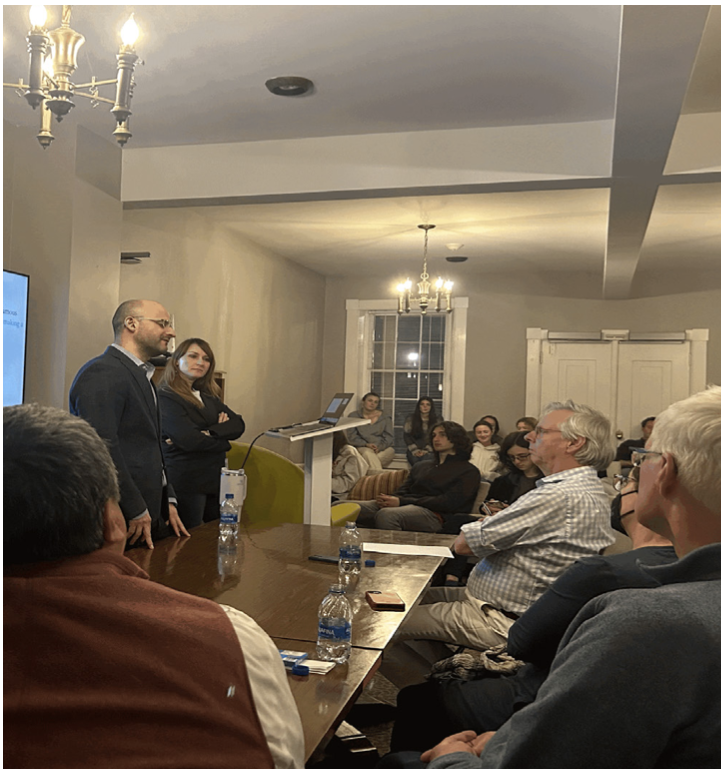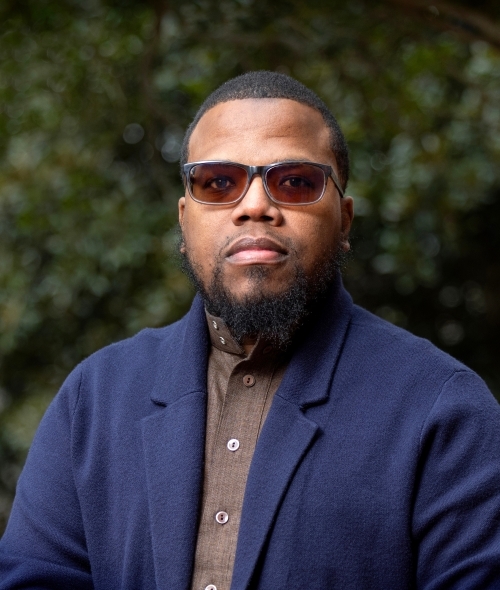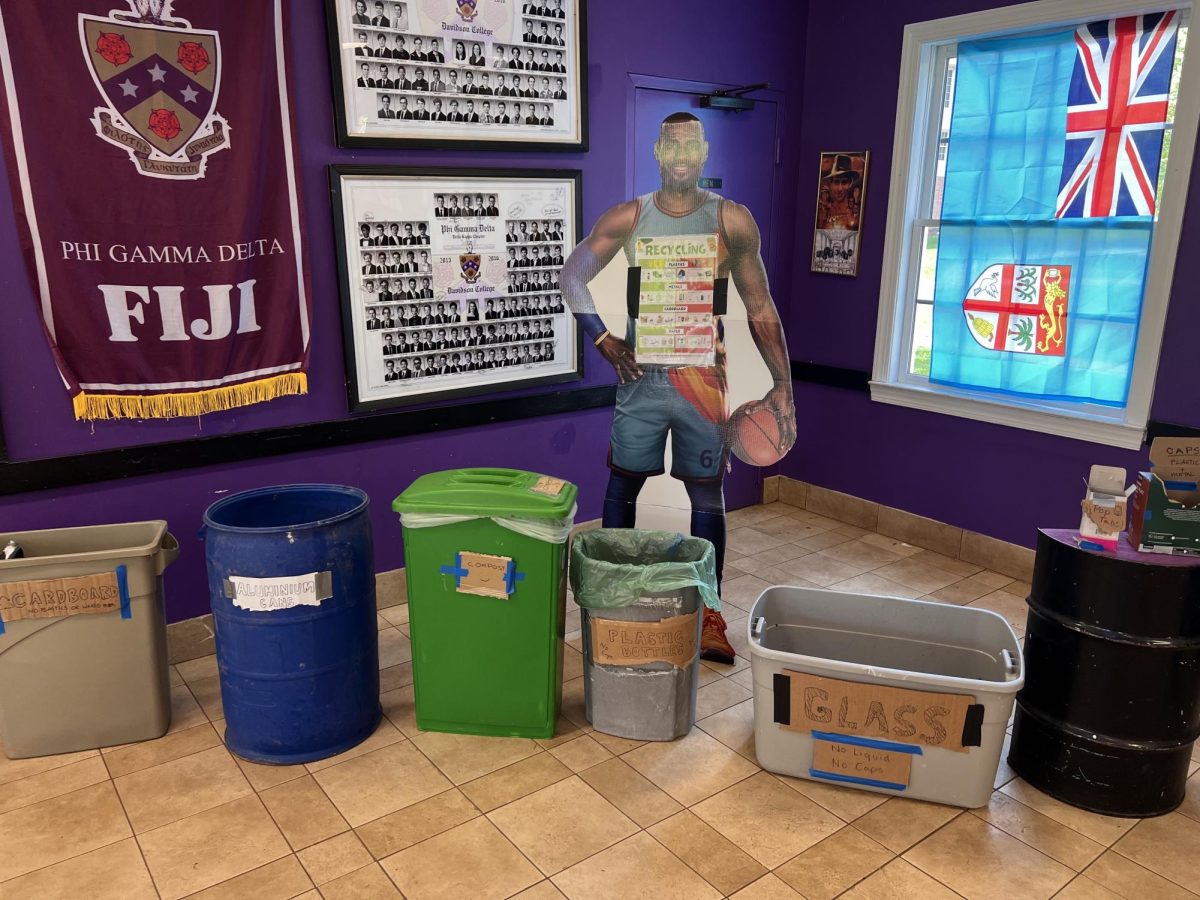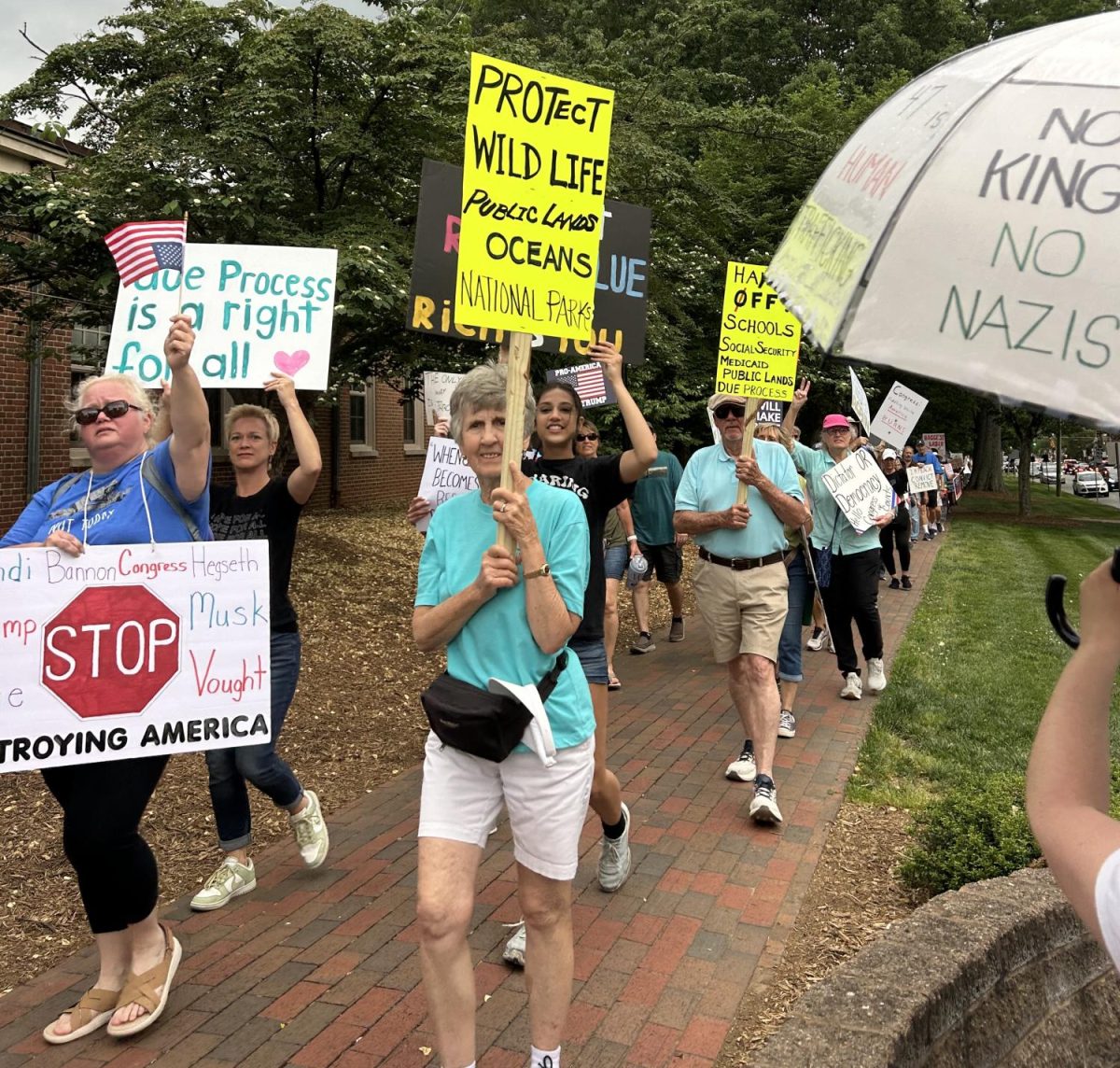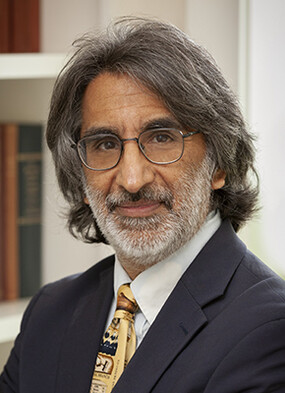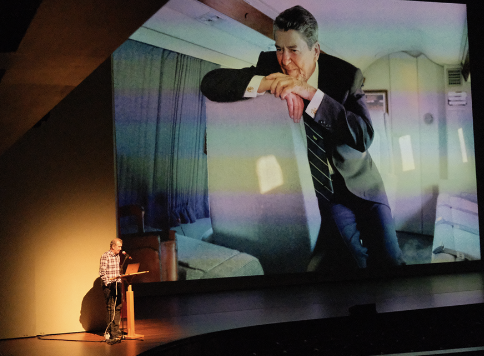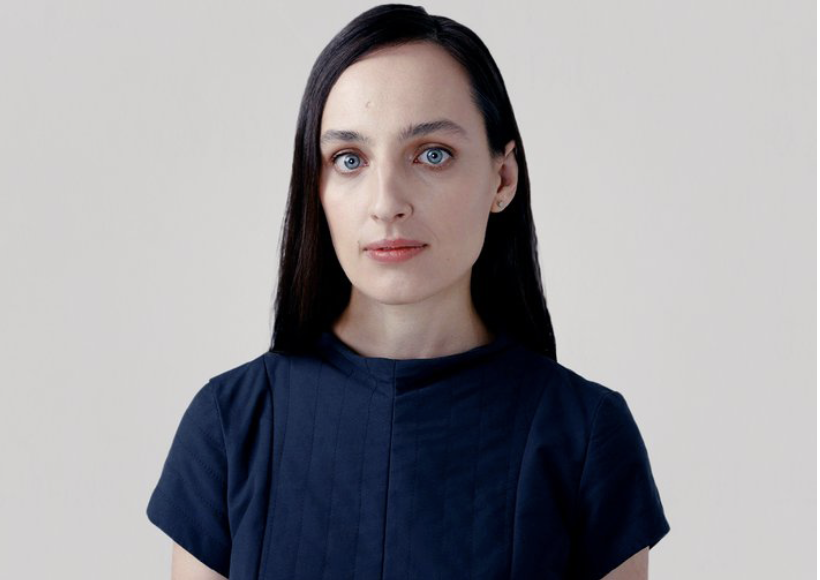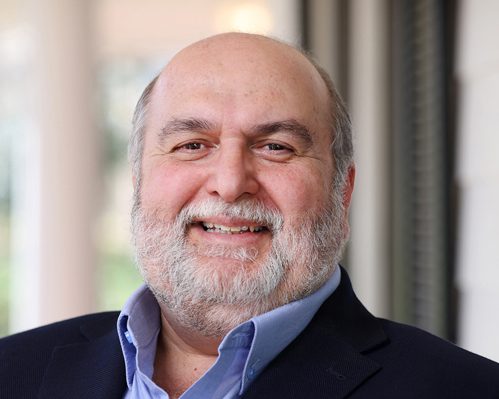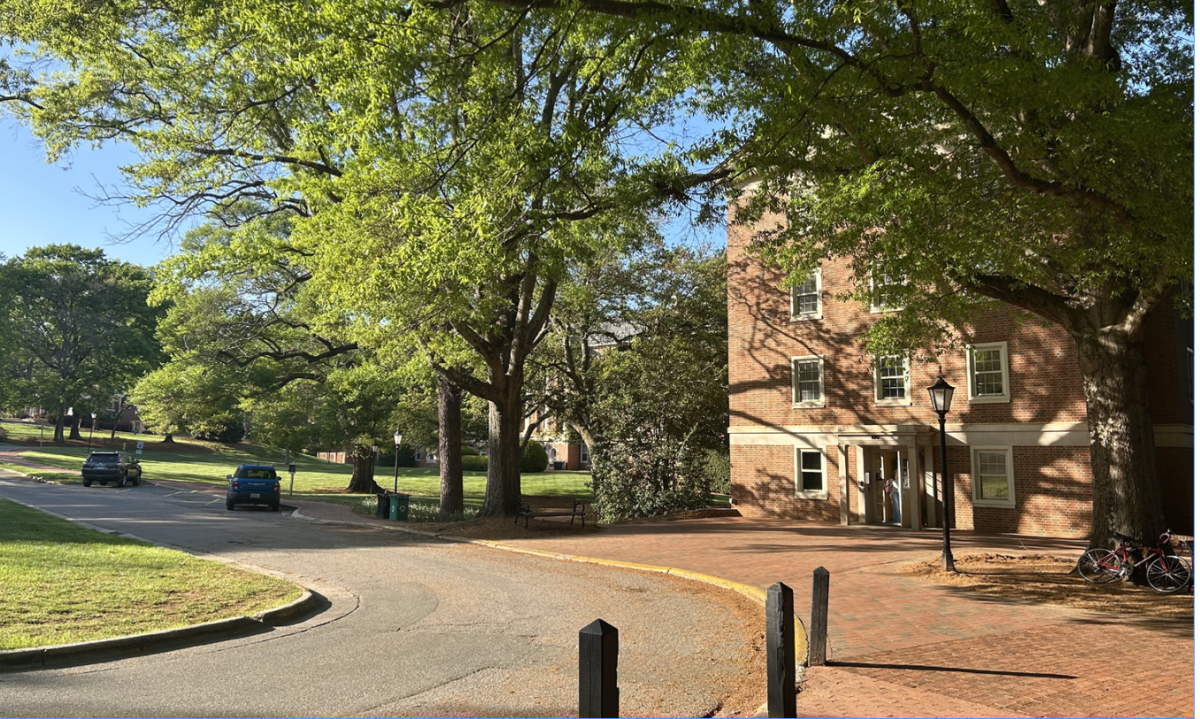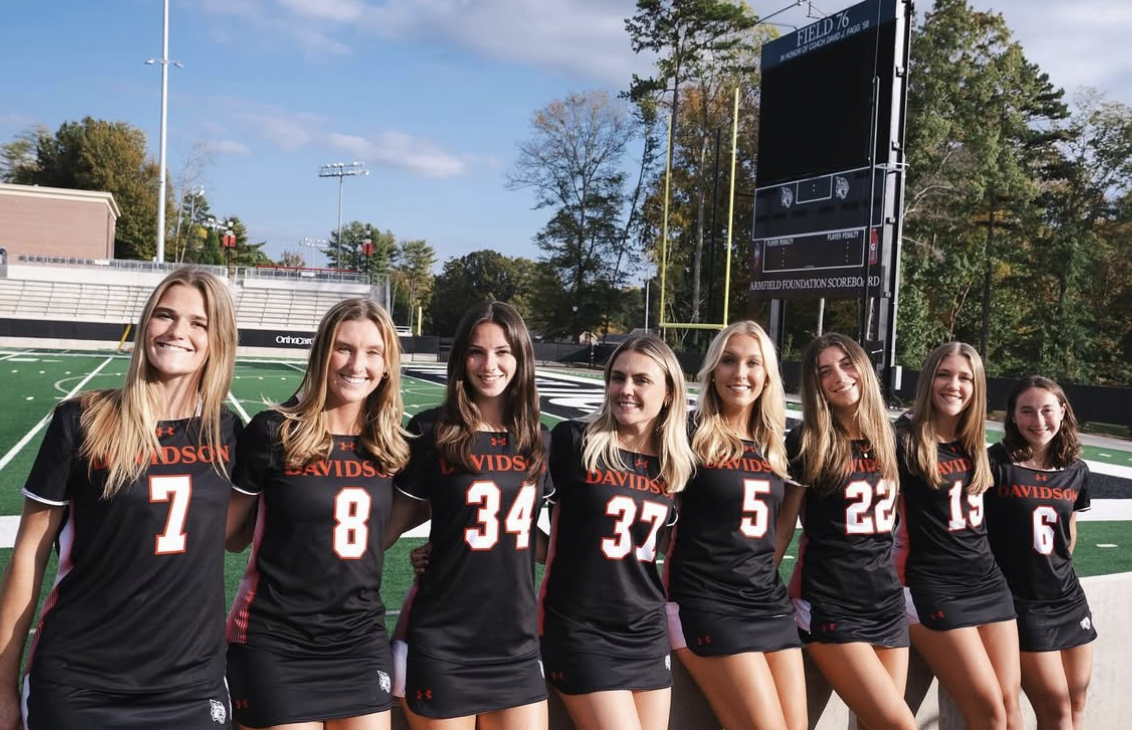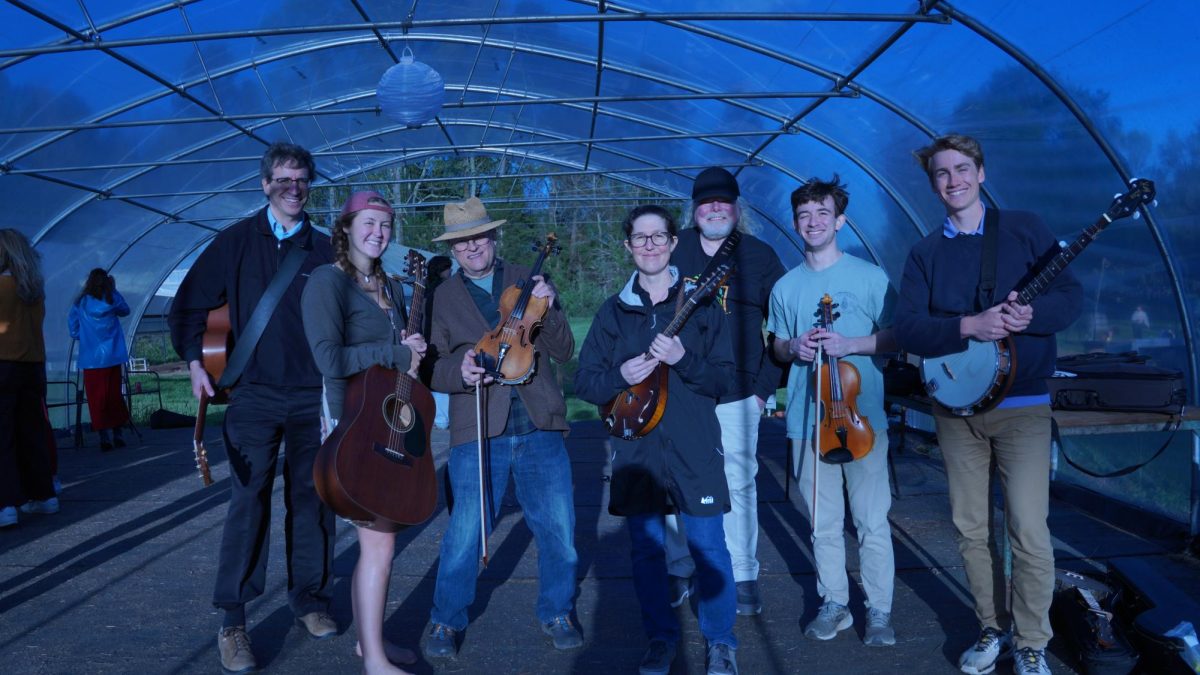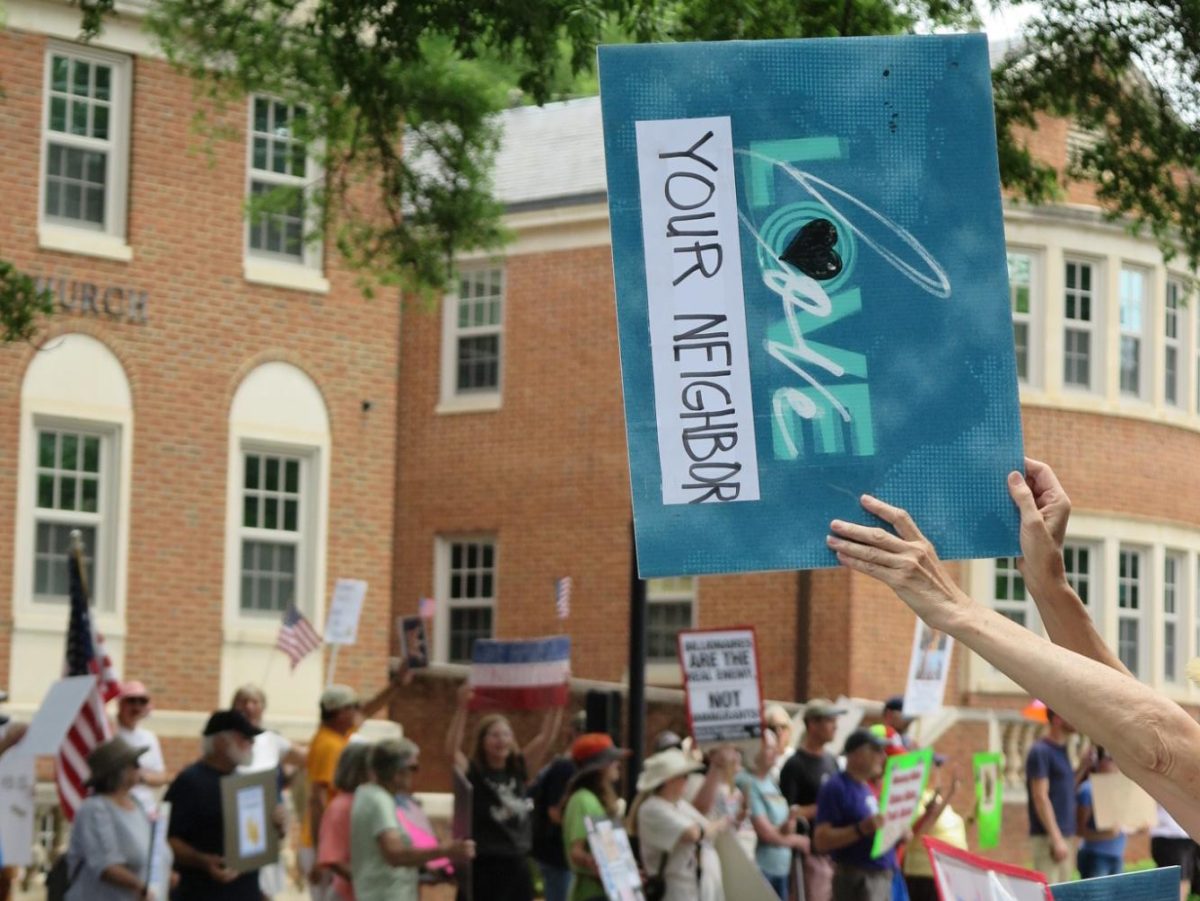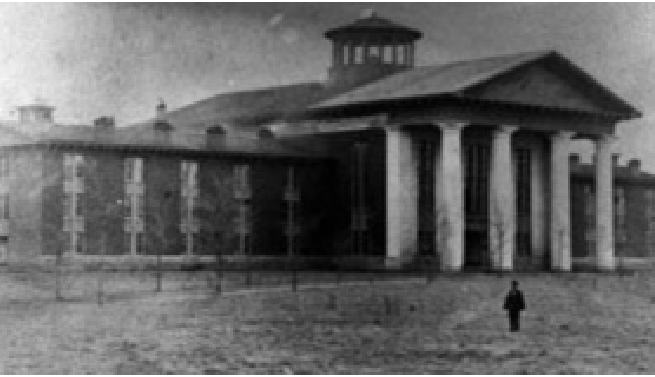In 1921, Davidson’s old Chambers Building erupted into flames. In her play, The Ghost of Old Chambers, Emma Kitchin ‘25 invites viewers to imagine what led up to that event with a play involving love, family and queer identity. The protagonist, Lucas, is a young student at Davidson College in the 1920s struggling with expressions of their gender and sexual identities while surrounded by a culture of both homophobia and transphobia. At the end of the play, Lucas emerges as Lucy out of the ashes of the old Chambers Building and accepts herself and the person she has always been inside.
Kitchin’s playwriting journey began in a Davidson classroom. “I took a course called Production Dramaturgy with the Theatre Department and my professor, Dr. Sharon Green, took us to the library archives. It was there that I learned about the Chambers fire in 1921,” she recalled.
The mystery of the event intrigued her, leading to the creation of an original story. “No one knew who started the fire and I became invested in figuring out why. Along the way, I started to learn a lot about what campus life was like here during the 1920s and felt inspired to use it.”
Kitchin’s Playwriting 201 course with Associate Professor of Theatre Mark Sutch helped her shape the story into something real. “After some encouragement from my peers, I asked our new professor, Dr. James Webb, to help me hone and develop the piece into a finished product through an independent study the next semester.” From that work, The Ghost of Old Chambers came to be.
While writing, Kitchin tied her own personal experiences into the storyline of the Chambers fire. “Around that time, I had begun dating one of my closest friends and she had recently come out to me as a trans woman,” she shared. “I still had feelings for her despite this change and felt a lot of emotions going through that process with her. Since I already had a fascinating setting for a love story, I decided to merge these two events and create The Ghost of Old Chambers.”
Kitchin was thrilled to see her story come to life on stage in the C. Shaw Smith 900 Room. “I’ve been working on this show for almost 3 years now, so to see these characters that have lived in my head for so long finally be given personality, flair and humor was astounding.”
Because of her experience writing plays and working with her peers in theater settings, Kitchin has developed a deeper appreciation for the art form. “Theater continues to baffle me as the one art form that requires the heart of a playwright, the brain of a director and the living, breathing bodies of actors in front of you to exist. It is a feat of humanity and I am honored to have contributed to it through this piece which means so much to me,” she shared.
Kitchin, however, would not have had success without her thespians. Sophia Schur ‘27 starred as Lucas/Lucy in the production and found value working in a student-run production. “Putting on a completely student-run and written production was a lot of work but ended up being really cool,” she stated. “I feel like the audiences were keeping up with what we were trying to say; being able to hear people laughing and gasping at the moments we had worked so hard on was especially rewarding.”
Playing a character who struggles with questions about their sexuality and gender identity during an intolerant period was an aspect that Schur found worthwhile. “The Ghost of Old Chambers touches on issues that are increasingly pertinent […] and I hope that our production dismantled the idea of transness being new or trendy,” Schur shared.
The play was positively received by audience members. Junah Jeong ‘27 was impressed by the acting performances. “The play featured very strong female leads who drew me into the narrative. Both characters were able to explore the complexities of queer identity while interacting seamlessly with one another.”
Anna Farmer ‘27 mirrored this sentiment as she shared, “I was so impressed by Sophia and the rest of the casts’ commitment to their characters.”
Farmer went on to describe the importance of giving a platform to plays covering LGBTQIA+ stories in our community. “The storyline was incredibly moving. It is so important to share stories such as these—ones that otherwise might go untold.”
When thinking about Davidson and its history, minority groups such as the LGBTQIA+ community usually get overlooked, placing a significant emphasis on the subject matter of the production. “When thinking about Davidson’s history as an institution that welcomed women only around 50 years [ago], performances such as this that address gender in such a thought-provoking way become all the more important,” Farmer emphasized.
Kitchin hopes that her play resonates with the community, especially those who can personally relate to the main character. “[I hope that] the queer or questioning students who saw the show know they are loved and never alone—that they have the company of all the queer people who came before them, even those who walked these very grounds,” she stated.
Kitchin also hopes to generate more widespread acceptance for the LGBTQIA+ community. “I want my parents and any others who were raised in a community where gender and sexuality were not allowed breath and space to see that queer people have always been here, living and working and loving right alongside everyone else,” she stated. “I want anyone with political or legislative power to witness a love that eclipses labels or understanding and see it for what it truly is: love. Nothing more and nothing less.”
Josie Swain ‘27 is an English major from Atlanta, GA and can be reached for comment at [email protected].

